Utilizing CRM Systems to Enhance Customer Relationships
In the competitive landscape of small businesses, maintaining strong customer relationships is key to sustaining growth and success. Customer Relationship Management (CRM) systems offer powerful tools to help businesses manage and enhance their interactions with customers. By effectively utilizing CRM systems, small businesses can streamline their processes, improve customer service, and drive long-term success. Here’s how CRM systems can benefit small businesses and enhance customer relationships.
What is a CRM System?
Definition: A CRM system is a software solution designed to manage and analyze customer interactions and data throughout the customer lifecycle. It helps businesses build stronger relationships, improve customer satisfaction, and drive growth.
Key Features: CRM systems typically include features such as contact management, sales automation, customer support, marketing automation, and analytics. These features enable businesses to manage customer information, track interactions, and streamline processes.
![[object Object]](https://clipl-web1.sgp1.cdn.digitaloceanspaces.com/images/clu85jjrg004x4irz2nm2hxdl.png)
Enhanced Customer Insights
- Centralized Data: CRM systems centralize customer data, including contact information, purchase history, and interactions. This centralized database provides a comprehensive view of each customer, allowing businesses to understand their needs, preferences, and behavior.
- Personalized Interactions: With detailed customer insights, businesses can tailor their communication and offers to individual preferences. Personalized interactions lead to increased customer satisfaction and loyalty.
Improved Customer Service
- Efficient Support: CRM systems streamline customer support by providing tools for tracking and managing customer inquiries, complaints, and support tickets. Efficiently handling support requests enhances the overall customer experience.
- Proactive Service: CRM systems allow businesses to track customer interactions and identify potential issues before they escalate. Proactive service helps in resolving problems quickly and preventing dissatisfaction.
![[object Object]](https://clipl-web1.sgp1.cdn.digitaloceanspaces.com/images/clu85g32c004p4irz90k4e9u5.png)
Streamlined Sales Processes
- Sales Automation: CRM systems automate various sales processes, including lead management, follow-ups, and pipeline tracking. Automation reduces manual tasks, enabling sales teams to focus on building relationships and closing deals.
- Forecasting and Analytics: CRM systems provide valuable insights into sales performance and trends. Sales forecasting and analytics help businesses make data-driven decisions and develop effective sales strategies.
Effective Marketing Campaigns
- Targeted Campaigns: CRM systems enable businesses to segment their customer base and create targeted marketing campaigns. By focusing on specific customer groups, businesses can improve the effectiveness of their marketing efforts.
- Campaign Tracking: CRM systems track the performance of marketing campaigns, providing insights into customer engagement, conversion rates, and ROI. This data helps businesses refine their marketing strategies and achieve better results.
![[object Object]](https://clipl-web1.sgp1.cdn.digitaloceanspaces.com/images/clw7bphbv003c4crz41ge3ejw.png)
Enhanced Collaboration
- Team Coordination: CRM systems facilitate collaboration among team members by providing a shared platform for accessing customer information, tracking interactions, and managing tasks. Improved coordination leads to more efficient operations and better customer service.
- Knowledge Sharing: CRM systems enable team members to share knowledge and insights about customers. This shared knowledge ensures that all team members are informed and can provide consistent and accurate information.
Increased Customer Retention
- Loyalty Programs: CRM systems help businesses design and manage loyalty programs that reward repeat customers. Implementing loyalty programs enhances customer retention and encourages long-term relationships.
- Customer Feedback: CRM systems can collect and analyze customer feedback, helping businesses understand customer satisfaction and identify areas for improvement. Addressing feedback promptly can prevent churn and strengthen customer loyalty.
![[object Object]](https://clipl-web1.sgp1.cdn.digitaloceanspaces.com/images/clzgxdkn5003l32qgb5yf7u09.png )
- Define Your Goals: Identify the specific goals you want to achieve with your CRM system. Whether it’s improving customer service, increasing sales, or enhancing marketing efforts, clearly defined goals will guide the implementation process.
- Choose the Right CRM: Select a CRM system that aligns with your business needs and budget. Consider factors such as ease of use, scalability, integration capabilities, and customer support.
- Train Your Team: Provide training to your team members to ensure they are proficient in using the CRM system. Effective training helps maximize the benefits of the CRM system and ensures smooth adoption.
- Monitor and Optimize: Regularly monitor the performance of your CRM system and gather feedback from users. Continuously optimize the system based on feedback and changing business needs to ensure it remains effective.
Conclusion
CRM systems are a valuable asset for small businesses seeking to enhance customer relationships, streamline operations, and drive growth. By leveraging CRM tools to gain insights, improve customer service, automate processes, and execute targeted marketing campaigns, businesses can build stronger connections with their customers and achieve long-term success. For more information on CRM solutions and to explore how CloudActive Labs India Pvt Ltd can support your CRM needs, visit CloudActive Labs India Pvt Ltd or contact us at [email protected].























